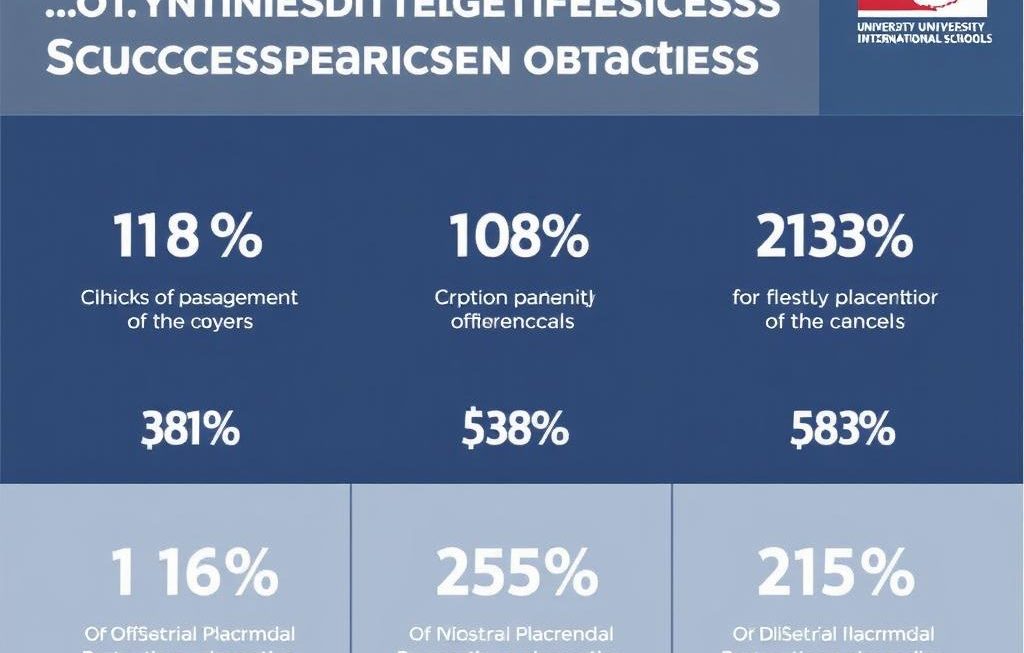Choosing an international school for your child in Cyprus involves more than just considering the curriculum or location. One of the most critical factors parents should analyze is the accreditation status of the school. Accreditation reflects the quality, standards, and credibility of the educational institution, assuring families that their child will receive a globally recognized and reliable education. For expat families and locals alike, understanding the framework of international school accreditation Cyprus offers is essential when making such key educational decisions.
This article delves deeply into the various school accreditation bodies Cyprus recognizes, explaining their role, significance, and impact on the educational environment. We will also explore the specific accreditation processes for international schools in Cyprus, such as CIS accreditation Cyprus schools pursue, and what it means for families relying on IBO authorized schools Cyprus provides. By the end, parents will have a clear, detailed understanding of expat school quality standards Cyprus adheres to and how to evaluate them effectively.
Understanding the Importance of International School Accreditation in Cyprus
At its core, international school accreditation Cyprus involves an independent body assessing and validating the school’s adherence to specific educational standards. This process assures parents and students about the quality, safety, and efficiency of the schooling environment. For international schools, accreditation also confirms that the curriculum offers a level of consistency and excellence recognized worldwide, which is crucial for families who may relocate frequently.
In Cyprus, especially, where the international school market is expanding rapidly, accreditation acts as a benchmark for educational quality. With numerous schools bearing different curricula—British, American, International Baccalaureate (IB), or European frameworks—the accreditation bodies ensure that schools meet the rigorous academic, administrative, and infrastructural standards necessary for students’ holistic development.
This validation often involves thorough assessments covering teaching methodologies, staff qualifications, student welfare, governance, facilities, and community engagement. The outcome, whether a full accreditation or candidacy status, serves as a critical reassurance to parents assessing the expat school quality standards Cyprus enjoys.
Accreditation provides a measurable standard for parents seeking reliable, globally recognized education for their children in Cyprus.
Key School Accreditation Bodies Cyprus Recognizes
Cyprus hosts a range of international schools that seek accreditation from several renowned bodies. The main organizations involved in accrediting these schools ensure that they match global benchmarks, safeguard student development, and maintain operational excellence.
Three primary accreditation bodies and authorizing organizations dominate the landscape of international school accreditation Cyprus currently uses:
- CIS (Council of International Schools)
- IBO (International Baccalaureate Organization)
- Other Regional and International Accreditation Agencies
Each of these bodies plays a unique role in validating and maintaining rigorous educational standards, ensuring that schools operating under their umbrella comply with both academic and ethical criteria.
CIS Accreditation Cyprus Schools Typically Pursue
The Council of International Schools (CIS) is one of the most respected and influential school accreditation bodies Cyprus-based international schools aspire to join. CIS accreditation Cyprus schools hold acts as a hallmark of quality, signaling adherence to comprehensive standards that include academic excellence, leadership, governance, student well-being, and community engagement.
CIS’s accreditation process typically spans several years and involves an extensive self-evaluation by schools followed by a peer review from international educators. The CIS places strong emphasis on continuous improvement beyond merely meeting the minimum criteria. Accredited schools commit to periodic re-evaluation, fostering a culture of reflection and development.
Importantly, CIS accreditation adds credibility for expat families concerned about the transferability of credits and smooth transitions amid relocations. Schools with CIS accreditation Cyprus credentials can attract a global student population while offering consistent quality, which is critical to maintaining expat school quality standards Cyprus supports.
CIS accreditation ensures international schools in Cyprus maintain global best practices in education and student welfare.
IBO Authorized Schools Cyprus Hosts
The International Baccalaureate Organization (IBO) offers curriculum authorization rather than broad school accreditation, but this distinction is vital. IBO authorized schools Cyprus hosts are permitted to deliver IB programs—Primary Years Programme (PYP), Middle Years Programme (MYP), Diploma Programme (DP), or Career-related Programme (CP)—which are respected worldwide for their academic rigor and holistic approach.
To become an IBO authorized school, institutions must demonstrate the entry requirements, including teacher training, curriculum planning, and resource availability, aligning fully with IB educational philosophy. Authorization involves ongoing evaluation to ensure continued compliance.
This commitment to quality education via IBO authorization adds another layer of assurance for parents who prioritize internationally standardized programs suitable for aspiring global citizens. Schools offering IB programs bring a cohesion of inquiry-based learning, critical thinking, and culturally aware education, reflecting what many expat families seek.
Overview of Other School Accreditation Bodies Cyprus International Schools May Engage With
While CIS and IBO are pivotal, several other regional and specialized accreditation agencies influence school quality standards in Cyprus. These include organizations linked to specific curricula, such as British accreditation councils or American accrediting bodies, depending on the curriculum offered. For example, British schools might seek recognition from bodies like the Federation of British International Schools in Asia (FOBISIA) or the Council of British International Schools (COBIS), adapted for Cyprus contexts.
Furthermore, a few schools pursue accreditation from regional European agencies that promote harmonized education standards across Europe. These accreditations support consistency in educational delivery, compliance with labor laws, child protection laws, and other country-specific regulations affecting school operations.
Cyprus’s Ministry of Education also supervises local educational standards that indirectly influence international schools. Though international schools operate somewhat autonomously, abiding by local regulations ensures legitimacy and operational legality in Cyprus.
Why Expats Should Pay Special Attention to Expat School Quality Standards Cyprus Upholds
Expat families in Cyprus often face unique challenges regarding their children’s education—frequent relocations, diverse academic backgrounds, language barriers, and varying national curricula. Hence, verifying expat school quality standards Cyprus guarantees is paramount. Accreditation bodies provide standardized benchmarks that alleviate much of this uncertainty.
Schools accredited under recognized international bodies tend to have transparent policies regarding student transfers, credit recognition, language support, and inclusive student services. These factors protect expat children’s academic progress and social adjustment, ultimately contributing to long-term academic and emotional well-being.
Moreover, accredited schools usually have a more diverse teaching staff, high qualifications, and additional resources, offering students cultural sensitivity and global perspectives—key components for expat families prioritizing a truly international educational experience.
Accreditation equips expat parents in Cyprus with measurable school quality assurances that safeguard their children’s educational continuity and development.
Detailed Breakdown of the Accreditation Process for International Schools in Cyprus
Understanding how accreditation unfolds can empower parents to ask the right questions and make informed choices. International school accreditation Cyprus follows a relatively structured but comprehensive cycle. While specific protocols differ between bodies like CIS and IBO, the general steps are similar.
Self-Study and Internal Review
Schools begin accreditation by conducting an exhaustive self-study analyzing all aspects—academic programs, faculty credentials, leadership, resource management, student services, community outreach, and compliance with safety laws. This stage involves collecting stakeholder feedback, including parents, staff, and students.
Peer Evaluation
Next, the accrediting body assembles a visiting team of educators, specialists, and inspectors who spend several days onsite. They observe classes, meet with school leadership and faculty, verify documentation, and evaluate the facilities.
Accreditation Decision and Reporting
After reviewing findings and reports, the accrediting body grants full accreditation, provisional status, or denial. Recommendations often accompany decisions, guiding the school toward improvements.
Continuous Monitoring and Reaccreditation
Most accreditation bodies require regular reviews every five years or so, ensuring the school continues to uphold standards and implement recommended changes.
| Accreditation Stage | Description | Approximate Timeline |
|---|---|---|
| Self-Study | School conducts comprehensive internal evaluation | 6-12 months |
| Peer Review | External team evaluates school onsite | 1 week |
| Decision & Reporting | Outcome communicated; recommendations issued | 2-3 months |
| Ongoing Monitoring | Periodic reports and full reaccreditation | Every 5 years |
How Parents Can Use Accreditation Status to Evaluate and Choose Schools
Parents seeking the best international schools in Cyprus should consider accreditation as a key criterion alongside curriculum preferences and student support services. Knowing a school is accredited by recognized bodies like CIS or authorized by IBO means the institution meets at least the minimum industry standards for quality and safety.
Parents can ask schools directly about their accreditation status and request the latest accreditation report summaries. These documents typically highlight strengths and areas for improvement, giving a balanced picture of the school’s operations.
Online accreditation directories maintained by bodies like CIS and IBO also offer searchable databases of accredited schools worldwide, simplifying parental verification.
Importantly, parents should consider the accreditation body’s reputation and whether it aligns with their child’s educational goals. For example, families seeking a globally recognized university preparation program might prioritize IB authorization, while others may emphasize CIS accreditation for overall institutional quality and governance.
The Future of School Accreditation Bodies Cyprus Will Likely Embrace
The international education landscape in Cyprus is evolving rapidly. Growing expat communities, global mobility, and increasing educational expectations push schools to continually improve. Accreditation bodies, too, are adapting by expanding their standards to include 21st-century skills, digital literacy, sustainability education, and mental health initiatives.
Looking ahead, we can expect school accreditation bodies Cyprus engages with to place even greater focus on personalized learning, inclusivity, and resilience-building. Digital assessments and virtual inspections may become more commonplace, reducing travel needs while maintaining rigorous evaluation standards.
Additionally, international organizations aim to foster greater collaboration among accreditation bodies to ease recognition and interoperability for families moving across countries. For parents, staying informed about these developments will empower better decision-making in Cyprus’s dynamic schooling environment.
International accreditation in Cyprus is evolving to meet future educational demands with innovative standards and global collaboration.
Empowered Choices: Harnessing Accreditation Knowledge for Peace of Mind and Future Success
For parents navigating the international education system in Cyprus, understanding school accreditation bodies Cyprus depends on is not just academic—it’s transformative. It translates complex quality measures into actionable insights, enabling families to safeguard their children’s futures with confidence.
Accreditation status unlocks transparency about teaching excellence, student welfare, and institutional stability, all essential in an increasingly interconnected world. Whether arriving as expatriates or long-term Cyprus residents choosing an international school, parents should see accreditation as the cornerstone of due diligence.
By combining an evaluation of school accreditation Cyprus holds with personal priorities and values, families ensure their children receive an education that stands the test of time and transcends borders. This knowledge moves parents from uncertainty to clarity, from guesswork to informed choice, ultimately fostering a rich learning experience that opens doors globally.
In summary, school accreditation in Cyprus is a vital indicator of quality and trust. As the international school landscape advances, staying aware and proactive about accreditation bodies and standards is the smartest investment parents can make in their child’s education and future.
Frequently Asked Questions
- What is the difference between CIS accreditation and IBO authorization?
CIS accreditation evaluates the entire school’s quality and operations, while IBO authorization specifically permits schools to offer IB programs. - How can I verify if a school in Cyprus has valid accreditation?
Check the official CIS, IBO, or other accreditation bodies’ websites, which list all accredited and authorized schools worldwide. - Does accreditation affect university admissions for students in Cyprus?
Yes. Accredited schools and recognized IB programs often facilitate smoother university acceptance worldwide due to recognized academic standards. - Are all international schools in Cyprus accredited?
No. Not all are accredited, which is why checking accreditation status is critical when selecting a school. - How often do schools in Cyprus need to renew their accreditation?
Typically, accreditation lasts about five years before requiring renewal, including continuous updates and follow-up reports. - Is accreditation required by law for international schools in Cyprus?
Accreditation is generally voluntary but strongly recommended. Local licensing requirements exist separately for legal operation. - How does accreditation impact expat school quality standards Cyprus offers?
Accreditation ensures international schools meet consistent quality, safety, and educational standards, benefiting expat families with reliable schooling options.



